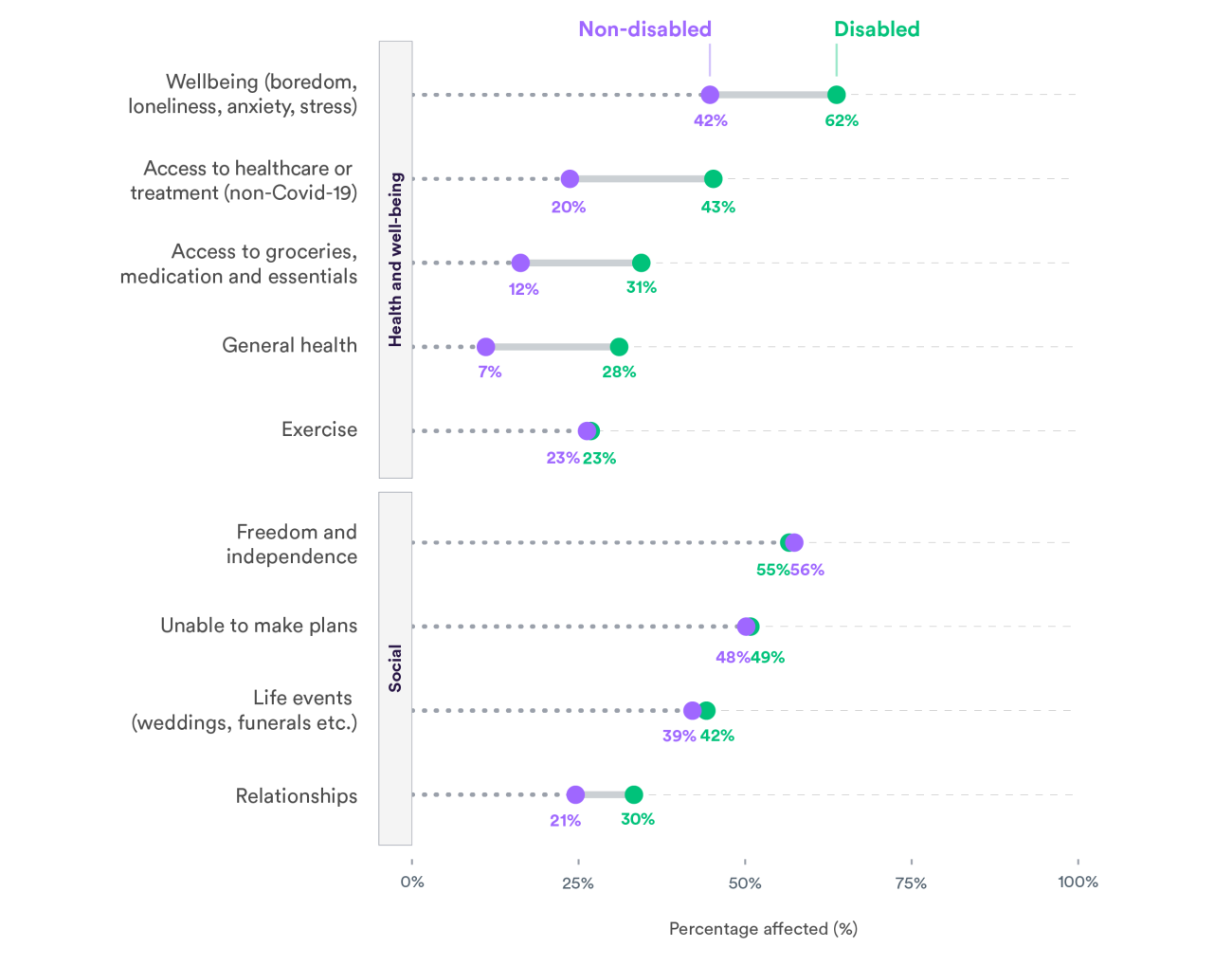Disabled people consistently face barriers to participation in society, as illustrated by last week’s shocking statistic that only 5.6% of people with a learning disability were in paid employment in the last year. And these barriers have been exacerbated by the Covid-19 pandemic.
While everyone’s lives have been disrupted, the ONS Opinions and Lifestyle Survey clearly shows that the impact on disabled people has been disproportionate – especially in areas related to their health and wellbeing. Almost a quarter (23%) more disabled people experienced difficulties in access to health care for non-Covid-related issues compared to non-disabled people, and a fifth more reported lower levels of wellbeing due to boredom, stress, and anxiety.
This pattern has been consistent during the pandemic, with different survey months showing that access to health care has gradually worsened since March. Disabled people were, conversely, less affected by changes to travel and work patterns compared to non-disabled people – presumably due to poorer access in the first place.
These disproportionate effects on disabled people are sadly not a surprise. Tragically, disabled people made up an estimated 60% of Covid-related deaths in the heightened months of lockdown from March to June. Many care and support arrangements broke down across the UK in the early months of the pandemic, as well as many service users, their care workers, and carers being forced to self-isolate or shield. Changes in access to health services have understandably been made to protect us all from infection, but for many disabled people these have resulted in additional obstacles, for example, among those with learning disabilities.
Social care has been too much of an afterthought in the pandemic response. Support to the sector has been too little, too late, and often focused too narrowly on older people in care homes. Disabled people's health, wellbeing and contribution to society must not be overlooked as we navigate the second wave of the pandemic and take steps towards securing a better future for social care.


